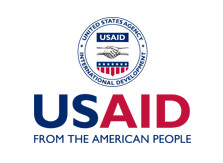|

KPVTA members and a participant from Uganda on the right on an escursion visit to George Mason High School in Virginia. | KPVTA members inspired by international experience at the International Congress on Community Services
Kano, Northern Nigeria [December 2006]
In Nigeria and many other countries, people living with disabilities face discrimination, stigma and exclusion - attitudes perpetuated by an absence of legal frameworks and policies supporting the rights of the disabled. Within Kano State, very few specialized services are available to this population. Disabled women and girls are particularly disadvantaged by the multiple constraints of physical disability, cultural limits on public participation, and gender discrimination.
Members of the Kano Polio Victims Trust Association [KPVTA] were in for a transforming experience when they met other colleagues from around the globe during the recent International Congress on Community Services in Washington D.C. With a focus on "Community Access to Resources for All" (CARE), the initiative gave service providers and people living with disabilities [PLWDs] a platform for exchanging ideas and sharing experiences on how to better provide for PLWDs throughout the world. In all, there were 320 participants from 62 countries. Nigeria was represented for the first time by nine representatives.
Aminu Ahmed, one of five KPVTA members who attended the Congress, talked about his experience. "The presentation by the Nordic Cooperation on Disability gave me hope." Amina Abdullahi, another representative at the event, expressed, "There is a need to create a forum for families of people living with disabilities. Since my return, I have shared the ’family voices’ experience with other KPVTA members. Translating this experience to Nigeria, for me is a necessity."
Funded by USAID with the Leahy War Victims Funds, the COMPASS/KPVTA Project helps KPVTA members and other polio victims in Kano State to become self-reliant by enhancing their vocational and technical skills, providing business development assistance, and working to reduce stigma and discrimination by raising public support through mass awareness campaigns.
Participants at the Congress discussed opportunities for providing quality healthcare to the disabled and successfully mobilizing communities to fight stigma and discrimination. Other issues discussed included handicap-assessable transportation, inclusive education, transition to adulthood and home care support.
Ideas derived from presentations and group discussions got the Nigerian representatives thinking of more creative and effective ways of improving their status. "We have taken it upon ourselves as women to start going from house to house, to talk to female parents of families of PLWDs, to request them to start sharing their experiences," said Amina.
Inspired by the Congress, KPVTA is now advocating to the Kano State government to organize a similar congress. "We need to discuss the implementation of supportive policies enacted for people living with disabilities," said KPVTA Project Manager and disability rights activist, Mohammed Doko. "On our part, we will continue to support KPVTA members to acquire self-sustaining skills, and campaign to reduce discrimination and stigma."
|
